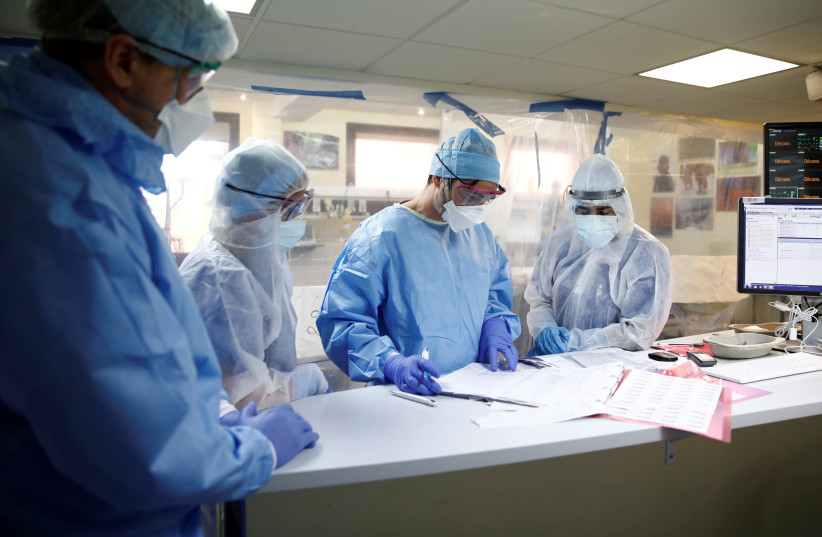One of the first confirmed cases of reinfection with the South African coronavirus variant was reported in France in a study published on Wednesday in the journal Clinical Infectious Diseases.
The subject of the case was a 58-year-old patient with a history of asthma who was diagnosed as infected with the South African variant four months after recovering from a first episode of COVID-19, according to the study.
In September last year, the patient was diagnosed with COVID after experiencing low fever and shortness of breath and receiving a positive PCR smear test. He recovered in a few days and was negative twice in December.
In January, about four months after the initial test was positive, the patient entered the hospital with recurrent shortness of breath and fever and tested positive for the new coronavirus again. Genome sequencing found that he was now infected with the South African variant. About a week after arriving at the hospital, the patient developed severe acute respiratory distress syndrome and was intubated and placed on a ventilator.
The antibody test found immunoglobulin antibodies against SARS-CoV-2, the new coronavirus. The patient had no evidence of any immune disorder and was still in critical condition when the study was submitted to the journal.
The study emphasized that the first infection occurred a month before the South African strain appeared, ruling out the hypothesis that reinfection was just a persistent viral spread.
Previous studies have suggested that those who recover from the virus generally have immunity against reinfection for at least six months, however, there are reports of cases of reinfection even in people who have antibodies to the virus, with some cases being more severe after reinfection. .
cnxps.cmd.push (function () {cnxps ({playerId: ’36af7c51-0caf-4741-9824-2c941fc6c17b’}). render (‘4c4d856e0e6f4e3d808bbc1715e132f6’);});
if (window.location.pathname.indexOf (“656089”)! = -1) {console.log (“hedva connatix”); document.getElementsByClassName (“divConnatix”)[0].style.display = “none”;}
